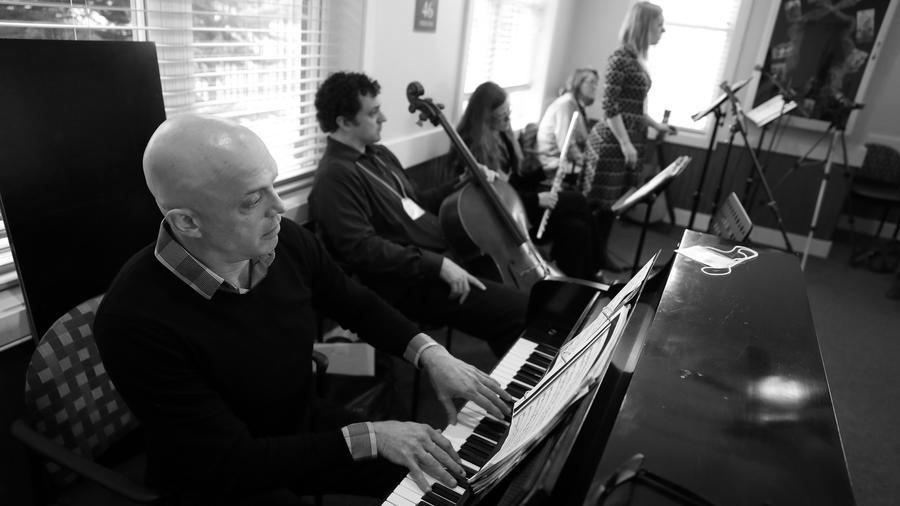An audience of patients with Alzheimer’s disease listens in rapt attention as a young woman sings the French song “Beau Soir.” Despite his failing mind, one of the men in the crowd, Les Dean, translates the words into English for a friend.
“See how the setting sun paints a river with roses,” he whispers. “Tremulous vision floats over fields of grain.”
And when the audience joins in a singalong on another tune, Dean’s voice rumbles in a resonant baritone, “Take my hand, I’m a stranger in paradise. All lost in a wonderland, a stranger in paradise.”
Dean, 76, once taught music at Senn High School, invented and sold his own music education system and sang with the Chicago Symphony Chorus. Now, like many patients with Alzheimer’s, he is to some extent lost in the past, a stranger to the present. He asks a visitor, “How are the children?” Five minutes later, he asks again, and again, unable to recall the question or the answer. But when the music plays, he smiles, and is transported to a place of beauty, where everything still makes sense.
In recent years, music therapy has grown in popularity for its seeming ability to help calm people with dementia and reconnect them with their memories. Now a Northwestern University researcher is testing whether music played for residents of a suburban nursing home can be therapeutic, whether it can improve cognition, conversation and relationships.
As the number of dementia patients grows — to nearly one in three seniors by the time of death — advocates hope to get insurance and Medicare to extend music therapy to everyone who could benefit from it.
In the process, caregivers whose parents or partners have grown distant, confused and agitated are finding new ways to share meaningful moments with the ones they love.
Is there anybody in there?
A person with dementia can recede so far that he or she is no longer responsive, suggesting personality and consciousness have been lost. But in his book “Musicophilia: Tales of Music and the Brain,” the renowned late neurologist Dr. Oliver Sacks wrote that he’d seen such patients shiver or weep while listening to music.
“Once one has seen such responses,” he wrote, “one knows that there is still a self to be called upon, even if music, and only music, can do the calling.”
Research has suggested benefits from music therapy for people with autism, depression, schizophrenia, brain injuries and cancer. Newborns in intensive care have been found to gain weight faster when exposed to music.
For people recovering from a stroke, the rhythm of music can help them regain their gait. Those with aphasia, who’ve lost the ability to speak, sometimes can sing familiar songs, and some can eventually be taught to transition from singing to talking.


